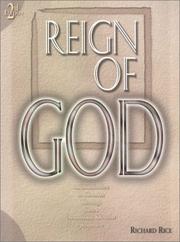| Listing 1 - 5 of 5 |
Sort by
|
Book
ISBN: 9781612195087 Year: 2016 Publisher: Brooklyn, NY Melville House Publishing
Abstract | Keywords | Export | Availability | Bookmark
 Loading...
Loading...Choose an application
- Reference Manager
- EndNote
- RefWorks (Direct export to RefWorks)
faith --- nation building --- free will --- free market --- business --- liberalism --- the end of history --- capitalism --- USA --- the American dream --- christianity --- protestantism --- American religion --- money

ISBN: 0521795087 0521791510 1107121531 9786610430000 0511175140 0511018827 0511155298 0511328761 0511613075 1280430001 0511046804 9780521795081 9780511018824 9780511155291 9780521791519 9780511613074 9780511046803 Year: 2002 Publisher: Cambridge, UK New York Cambridge University Press
Abstract | Keywords | Export | Availability | Bookmark
 Loading...
Loading...Choose an application
- Reference Manager
- EndNote
- RefWorks (Direct export to RefWorks)
Religion, Theology and the Human Sciences explores the religious consequences of the so-called 'end of history' and 'triumph of capitalism' as they have impinged upon key institutions of social reproduction in recent times. The book explores the imposition of managerial modernity upon successive sectors of society and shows why many people today feel themselves to be oppressed by systems of management that seem to leave them no option but to conform. This culture has spread through education, health and social services and has been welcomed by the churches. Richard Roberts seeks to challenge and outflank such seamless, oppressive modernity, through reconfiguration of the religious and spiritual field. This volume will be of use to a range of students in humanities and social sciences (particularly theology and the sociology of religion) and should become standard reading for those concerned with the practical application of contemporary theology in a postmodern world.
Religion and sociology --- Management --- Capitalism --- History --- Religious aspects --- Social aspects --- -Godsdienst en cultuur: algemeen --- #SBIB:316.331H340 --- 316:2 --- 316:2 Godsdienstsociologie --- Godsdienstsociologie --- Religion and society --- Religious sociology --- Society and religion --- Sociology, Religious --- Sociology and religion --- Sociology of religion --- Sociology --- Administration --- Industrial relations --- Organization --- Market economy --- Economics --- Profit --- Capital --- Godsdienst en cultuur: algemeen --- Arts and Humanities --- Religion --- Religion and sociology - History - 20th century. --- Management - Religious aspects - History - 20th century. --- Capitalism - Religious aspects - History - 20th century. --- Religion and sociology - Great Britain - History - 20th century. --- Management - Social aspects - Great Britain - History - 20th century. --- Capitalism - Social aspects - Great Britain - History - 20th century. --- religion, theology and the human sciences --- the 'end of history' --- the 'triumph of capitalism' --- managerial modernity --- education, health, social services and religion --- reconfiguration of the religious and spiritual field
Book
ISBN: 1282772635 9786612772634 052094464X 9780520944640 9781282772632 9780520267879 0520267877 9780520252554 0520252551 Year: 2009 Publisher: Berkeley University of California Press
Abstract | Keywords | Export | Availability | Bookmark
 Loading...
Loading...Choose an application
- Reference Manager
- EndNote
- RefWorks (Direct export to RefWorks)
In a tour de force of lyrical theory, Joshua Clover boldly reimagines how we understand both pop music and its social context in a vibrant exploration of a year famously described as "the end of history." Amid the historic overturnings of 1989, including the fall of the Berlin Wall, pop music also experienced striking changes. Vividly conjuring cultural sensations and events, Clover tracks the emergence of seemingly disconnected phenomena--from grunge to acid house to gangsta rap--asking if "perhaps pop had been biding its time until 1989 came along to make sense of its sensibility." His analysis deftly moves among varied artists and genres including Public Enemy, N.W.A., Dr. Dre, De La Soul, The KLF, Nine Inch Nails, Nirvana, U2, Jesus Jones, the Scorpions, George Michael, Madonna, Roxette, and others. This elegantly written work, deliberately mirroring history as dialectical and ongoing, summons forth a new understanding of how "history had come out to meet pop as something more than a fairytale, or something less. A truth, a way of being."
Popular music --- Rap (Music) --- Underground dance music --- Grunge music --- Nineteen eighty-nine, A.D. --- 1989 A.D. --- Nineteen hundred eighty-nine, A.D. --- Year nineteen eighty-nine, A.D. --- Nineteen eighties --- Grunge rock music --- Alternative rock music --- Club music --- Dance music, Electronic --- Dance music, Underground --- EDM (Electronic dance music) --- Electronic music (Electronic dance music) --- UDM (Underground dance music) --- Dance music --- Electronica (Music) --- Remixes --- Music, Popular --- Music, Popular (Songs, etc.) --- Pop music --- Popular songs --- Popular vocal music --- Songs, Popular --- Vocal music, Popular --- Music --- Cover versions --- History and criticism. --- acid house. --- bands. --- cultural studies. --- de la soul. --- dr dre. --- entertainment industry. --- fall of the berlin wall. --- gangsta rap. --- george micheal. --- grunge music. --- historical. --- history. --- jesus jones. --- lyrical theory. --- madonna. --- media studies. --- music studies. --- music. --- musicians. --- nine inch nails. --- nirvana. --- nwa. --- performing arts. --- political aesthetics. --- politics. --- pop music. --- popular music. --- public enemy. --- rap music. --- retrospective. --- roxette. --- singers. --- social context. --- the end of history. --- the klf. --- the scorpions. --- u2. --- Electronic dance music
Book
ISBN: 140088103X 9781400881031 9780691166346 069116634X 9780691180694 0691180695 Year: 2016 Publisher: Princeton
Abstract | Keywords | Export | Availability | Bookmark
 Loading...
Loading...Choose an application
- Reference Manager
- EndNote
- RefWorks (Direct export to RefWorks)
Nietzsche's impact on the world of culture, philosophy, and the arts is uncontested, but his political thought remains mired in controversy. By placing Nietzsche back in his late-nineteenth-century German context, Nietzsche's Great Politics moves away from the disputes surrounding Nietzsche's appropriation by the Nazis and challenges the use of the philosopher in postmodern democratic thought. Rather than starting with contemporary democratic theory or continental philosophy, Hugo Drochon argues that Nietzsche's political ideas must first be understood in light of Bismarck's policies, in particular his "Great Politics," which transformed the international politics of the late nineteenth century.Nietzsche's Great Politics shows how Nietzsche made Bismarck's notion his own, enabling him to offer a vision of a unified European political order that was to serve as a counterbalance to both Britain and Russia. This order was to be led by a "good European" cultural elite whose goal would be to encourage the rebirth of Greek high culture. In relocating Nietzsche's politics to their own time, the book offers not only a novel reading of the philosopher but also a more accurate picture of why his political thought remains so relevant today.
Demokratie. --- Politik. --- Philosophie. --- Political and social views. --- Nietzsche, Friedrich, --- Nietzsche, Friedrich Wilhelm, --- Philosophieren --- Philosoph --- Philosophin --- Staatspolitik --- Politische Lage --- Politische Entwicklung --- Politische Situation --- Volksherrschaft --- Demokratischer Staat --- Democracy --- Herrschaftssystem --- Parteienstaat --- Republik --- Volkssouveränität --- Demokratische Bewegung --- Demokrat --- Postdemokratie --- Political and social views of a person --- After Virtue. --- Alexander Nehamas. --- Ancient Greece. --- Aphorism. --- Apollonian and Dionysian. --- Aristocracy. --- Arthur Schopenhauer. --- Bellum omnium contra omnes. --- Bernard Williams. --- Beyond Good and Evil. --- Bonnie Honig. --- Brian Leiter. --- Cambridge University Press. --- Career. --- Concept. --- Contemporary society. --- Contradiction. --- Critique. --- Darwinism. --- David Runciman. --- Democracy. --- Democratization. --- Disenchantment. --- Ethics. --- Existence. --- Franco-Prussian War. --- Friedrich Nietzsche. --- German philosophy. --- God is dead. --- Good and evil. --- Hegelianism. --- High culture. --- Hostility. --- Institution. --- Intellectual. --- J. W. Burrow. --- Jacques Derrida. --- Jews. --- John Rawls. --- Last man. --- Lecture. --- Legislation. --- Legitimacy (political). --- Literature. --- Machiavellianism. --- Martin Heidegger. --- Master–slave morality. --- Mazzino Montinari. --- Modernity. --- Morality. --- Nachlass. --- Nation state. --- Nihilism. --- Of Education. --- On the Genealogy of Morality. --- Oxford University Press. --- Pathos. --- Phenomenon. --- Philosopher. --- Philosophy in the Tragic Age of the Greeks. --- Philosophy of Friedrich Nietzsche. --- Philosophy. --- Plato. --- Platonism. --- Political party. --- Political philosophy. --- Politics. --- Postmodernism. --- Pre-Socratic philosophy. --- Princeton University Press. --- Quentin Skinner. --- Radicalism (historical). --- Ralph Waldo Emerson. --- Realpolitik. --- Regulatory state. --- Religion. --- Republic (Plato). --- Ressentiment. --- Rhetoric. --- Romanticism. --- Routledge. --- Self-interest. --- Slavery. --- State (polity). --- State of nature. --- Suggestion. --- Superiority (short story). --- The Birth of Tragedy. --- The End of History and the Last Man. --- The Gay Science. --- The Philosopher. --- Theory. --- Thomas Hobbes. --- Thought. --- Thus Spoke Zarathustra. --- Tractatus Politicus. --- Transvaluation of values. --- Twilight of the Idols. --- Will to power. --- Writing. --- Political philosophy. Social philosophy --- Nietzsche, Friedrich

ISBN: 1883925169 Year: 1997 Publisher: Berrien Springs, Michigan Andrews University Press
Abstract | Keywords | Export | Availability | Bookmark
 Loading...
Loading...Choose an application
- Reference Manager
- EndNote
- RefWorks (Direct export to RefWorks)
Christian theology --- faith and reason --- the reign of God --- divine revelation --- the nature of Biblical revelation --- the nature of prophetic revelation --- the question of Biblical inerrancy --- the Bible --- the Biblical canon --- Biblical interpretation --- God's character --- God the father of Jesus Christ --- the trinity --- the sovereignty of love --- names of God --- the nature of the reign of God --- God and the world --- God's identity --- God's activity in the world --- God's experience of the world --- human corporeality --- human sociality --- human sexuality --- human development --- humanity as the image of God --- human uniqueness --- human freedom --- the meaning of sin --- the nature of death --- the meaning of death --- the future beyond death --- Christianity and Jesus --- Jesus and God --- Jesus' resurrection --- the development of Christology --- the Biblical doctrine of Christ --- Jesus' divinity --- Jesus' humanity --- Jesus' life and work --- Jesus' death --- the atonement --- the cross of Christ and the reign of God --- the Church --- Christian community --- salvation and the Church --- the doctrine of the Church --- the Gospel and the Church --- the People of God --- the body of Christ --- spiritual gifts --- Ellen G. White --- Biblical authority --- Community of the Spirit --- Christian mission --- the salvation of non-Christians --- Church organization --- the Gospel Ministry --- salvation by faith --- salvation by works --- salvation and the law of God --- citizenship in the kingdom of God --- sanctification --- salvation and human freedom --- Christian perfection --- Christian identity and Christian behavior --- ethics and the larger Christian life --- Adventist eschatology --- Christian eschatology --- the Biblical view of time --- Jesus and the end of history --- prophecy and history --- Adventism and the Advent movement --- Christ in the heavenly sanctuary --- human destiny --- the meaning of eternal life --- eternal life as restoration --- Christian worship --- prayer --- Baptism --- the Lord's supper --- the function of religious symbols --- the Sabbath --- the Sabbath in the Bible
| Listing 1 - 5 of 5 |
Sort by
|

 Search
Search Feedback
Feedback About UniCat
About UniCat  Help
Help News
News